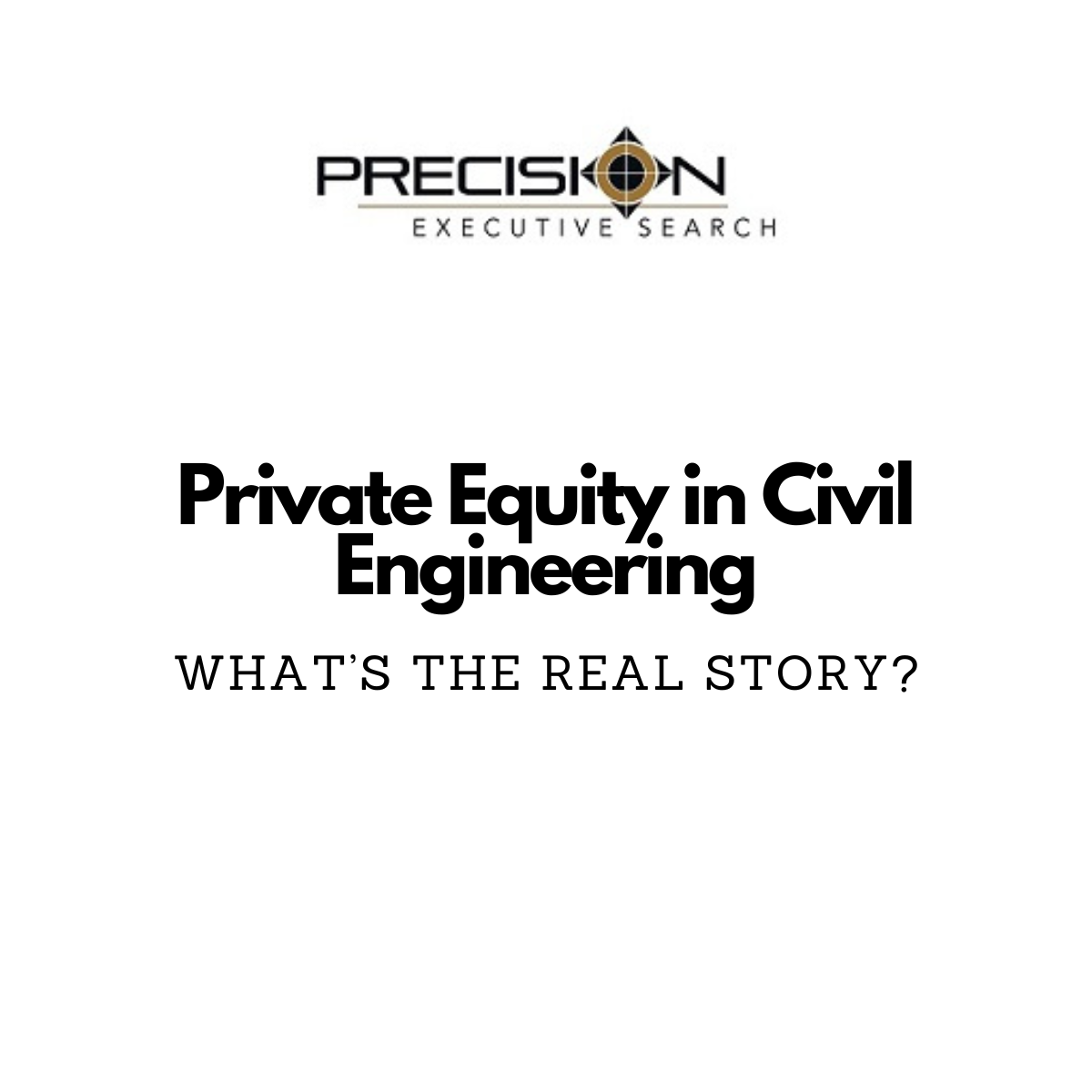
05 Mar Private Equity in Civil Engineering: What’s the Real Story?
If you’ve been in the civil engineering industry for even just the past few years, you’ve probably noticed a pretty big trend: private equity (PE) firms have been making their way into the space in a big way. And if you’ve found yourself wondering why is this happening? or what does it mean for me?—you’re definitely not alone.
So… What is Private Equity (PE), Anyway?
In simple terms, private equity firms invest large sums of money into businesses with the goal of growing them, streamlining operations, and ultimately making them more profitable. In return, they typically take a significant ownership stake and work hand-in-hand with leadership to hit strategic goals.
But here’s the big question a lot of people ask:
Why Would a Civil Engineering Firm Sell to Private Equity?
Turns out, there are quite a few reasons why an engineering firm might decide to partner with PE. Some of the most common include:
💰 Access to Growth Capital
Maybe the firm has a big vision—to expand into new markets, invest in technology, or hire top talent—but they need a serious cash infusion to make it happen. PE can provide that.
👥 Succession Planning
Founders and senior leaders don’t stay forever. For some, partnering with PE creates an exit strategy, giving them liquidity after decades of building the business.
📈 Market Positioning
With increased competition in the industry, some firms see PE as a way to strengthen their position, add new service lines, or expand their geographic footprint through acquisitions.
But like pretty much everything in life, PE involvement has its pros and cons, especially when you’re an employee experiencing the changes firsthand.
The Pros of Working for a PE-Backed Civil Engineering Firm
✅ Resources & Growth
PE firms usually have one goal: grow the business. That can mean exciting new projects, career growth opportunities, and the chance to work on bigger, better things.
✅ Operational Improvements
Many PE-backed firms invest heavily in improving internal processes, tools, and systems, making your day-to-day job smoother and more efficient.
✅ Strategic Acquisitions
PE can fund acquisitions that bring new talent, expertise, and service offerings to the table—opening the door for collaboration and innovation.
The Cons of Working for a PE-Backed Civil Engineering Firm
❌ Short-Term Focus
Most PE firms have an investment timeline (usually 5-7 years). That sometimes means leadership is focused on maximizing profits quickly, which can affect decision-making.
❌ Cultural Shifts
For firms that were previously employee-owned or had a family-like atmosphere, the shift to PE ownership can feel abrupt. Profitability and growth become the name of the game, and that can impact culture.
❌ Increased Reporting & Oversight
PE loves data. You may see tighter performance metrics, more frequent check-ins, and additional layers of oversight that didn’t exist before.
So, Is Private Equity “Good” or “Bad” for Civil Engineering?
Honestly, it depends.
For some, PE brings incredible opportunity—more resources, better tools, and exciting career paths. For others, it feels like the heart of the company shifts from serving clients and communities to serving spreadsheets.
The real answer lies somewhere in between. Every PE firm is different, every civil engineering company is different, and how the two mesh together is what really determines the outcome.
What’s Been Your Experience?
Have you worked for a PE-backed firm in civil engineering?
Was it a positive change with new opportunities? Or did it shift the culture in a way that didn’t sit right with you?
👉 I’d love to hear your take. Drop a comment below and let’s keep the conversation going!
#CivilEngineering #CivilEngineeringJobs #PrivateEquity #EngineeringCareers


No Comments